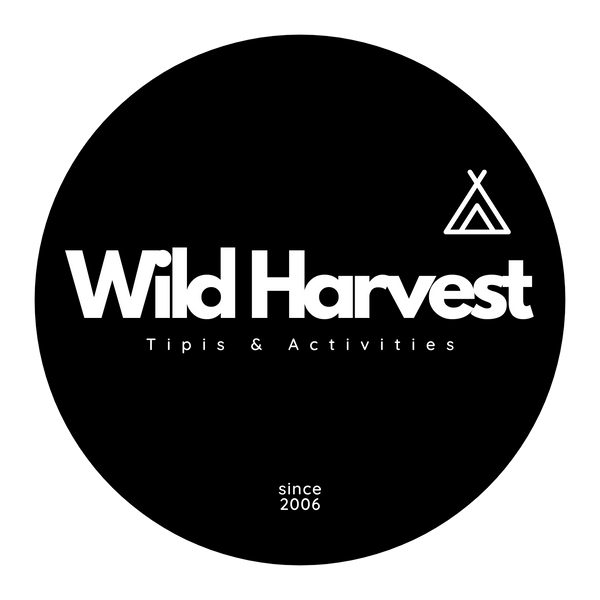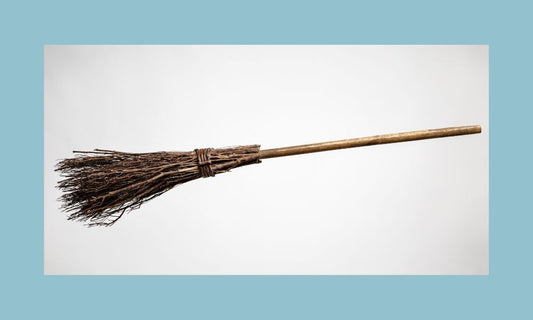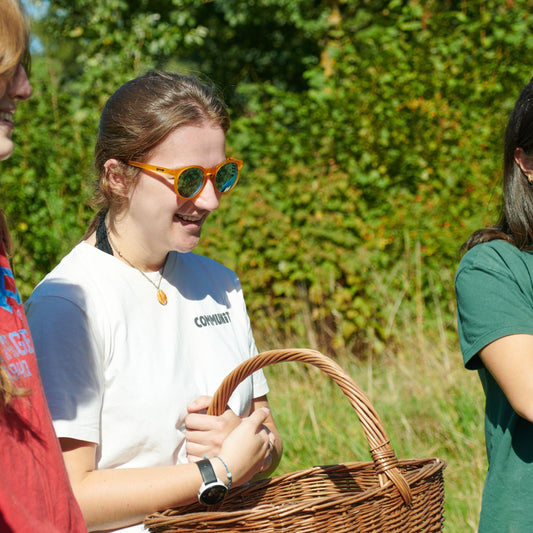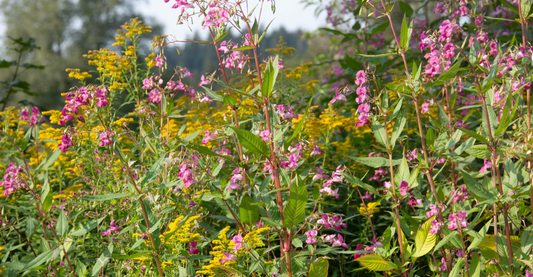
Foraging and the Law: Protected Plants You Can’t Pick
The legal landscape for foragers regarding conservation is quite interesting and often overlooked by well-meaning, environmentally conscious wild food gatherers :) In the next two blogs I will consider the Wildlife and Countryside Acts 'schedule 8 and schedule 9 plants'.
Think of it like this: Schedule 8 tells me what NOT to forage, and schedule 9 tells me what not to SPREAD.
This Post Deals with 'Schedule 8' Plants.
The Wildlife and Countryside Act was passed in 1981. This Act might feel a bit dated (think; How can a law written nearly 50 years ago know which plants today need protecting?) — but read on...
Section 13 of the Act gives us, what is known as 'Schedule 8’ where you will find a list of plants that you should avoid foraging for conservation reasons. This list includes both common and Latin names of plants that are considered 'at risk' of extinction.
Due to plant communities changing, year after year, with varying weather patterns and environment - the problem of 'which plants to include for protection' also changes.
These changes are recognised and built into the Act by a five yearly update to the 'protected plants' list in Schedule 8.
For those curious to dive deeper, I’ve included a link to Schedule 8, which you can check out for free on the gov.uk website. It lists the plants you currently should NOT be foraging.
I've also added a screen shot of the list below for easier reference.
Now, regarding Europe, plants that need protection there are covered in the European Habitats Directive. (links at the end of this post) it does seem more to do with Habitat eg. 'dry heath' than individual plant list per se, but feel free to dig through the links below deeper than I have, if you are in Europe and want to know more.
Back to the U.K...
Who Decides Which Plants Go on Schedule 8?
The Joint Nature Conservation Committee (JNCC) monitor biodiversity and report on changes (links below) together with other the statutory nature conservation agencies.
The Criteria for Including Plants in Schedule 8
Criteria for the selection of species for Schedules 5 and 8 of the Wildlife and Countryside Act, 1981 are stated as:
i. ii. there is an international obligation to afford legal protection to the
species;
an animal or plant is in danger of extinction in Great Britain, or is
likely to become so endangered unless conservation measures are
taken, and legal protection is likely to improve its chances of survival.
Scheduling is considered to be particularly appropriate where there is a need
to:
iii. 4.2 protect an animal or plant species from direct human pressure such as
persecution, collection or trade;
Plants can also be removed from Schedule 8 at each review; as shown in the following photo:
What Happens if I Pick a Plant that has Legal Protection?
When it comes to consequences, if you happen to forage plants listed in Schedule 8, you may be surprised to learn it's a criminal offence, not a civil one. It is a criminal offence that is classified as 'summary', rather than 'on indictment' or 'indictable'. Summary offences cover the more minor crimes such as low value theft, common assault... and foraging protected plants!
As a summary offence it would be dealt with in a Magistrates court, rather than a Crown Court. Summary offences carry a maximum penalty of six months in prison or a fine.
The Crown Prosecution Website says:
Protection of Wild Plants
Under Section 13(1)(a), it is an offence to intentionally pick, uproot, or destroy any wild plant included in Schedule 8 and, under section 13(1)(b), an offence for anyone other than an authorised person to uproot any wild plant. It is a defence, under section 13(3), to show that the act was an incidental result of a lawful operation.
What if I Sell Protected Plants?
If you have foraged protected plants and either turned them into a saleable commodity or sold them (eg. to a posh restaurant or to gardeners) then the following sub section applies to you... note you are guilty even if all you have done is 'offer for sale' and the sale has not gone through.
"Under Section 13(2), it is an offence to sell, offer or expose for sale, or possess any live or dead wild plant included in Schedule 8 or any part of that plant.
Picking Licenses
Although I'm not sure on the current validity of this as I can only find 2014 data, you used to be able to get a picking license. The 2014 entry on the government website suggests you can get a license if the picking is for
educational or scientific purposes or...
- preventing serious damage to livestock, food for livestock, crops, vegetables, fruit, growing timber, or fisheries, or any other form of property
- preventing the spread of disease
- preserving public health or public safety
. The administrator of the license is Natural England and the form is still available online HERE
What do you think of this law, is it right that we legally protect plants from being foraged, for conservation reasons and treat it as a criminal offence? If we do not do this what are the consequences? The words of Joni Mitchell 'You Don't Know What You've Got Till it's Gone" spring to mind. The law is there to protect us, others and our environment - there are no rights without responsibilities. So please forage safely and legally.
Useful Links For Protected Plants and Foraging




